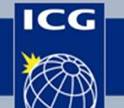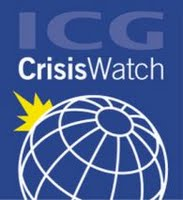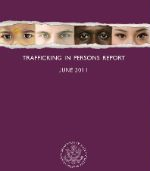What does it mean to be poor?


 The World Health Organization (WHO) and the Haitian and Canadian governments launched a maternal and child health initiative today, a continuation and expansion of two existing programs. Even prior to the earthquake, Haiti was a difficult place to be a mother or a young child. Through this initiative, mothers and children under five receive basic care without cost. The intent is to progressively scale up this initiative to 90 health care facilities throughout the country. The full press release follows.
The World Health Organization (WHO) and the Haitian and Canadian governments launched a maternal and child health initiative today, a continuation and expansion of two existing programs. Even prior to the earthquake, Haiti was a difficult place to be a mother or a young child. Through this initiative, mothers and children under five receive basic care without cost. The intent is to progressively scale up this initiative to 90 health care facilities throughout the country. The full press release follows.
 The International Crisis Group has released a report on the importance of police reforms for security in Haiti, meaning freedom from intimidation and abuse, conflict and violence, and crime and impunity. The release comes during a time in which Brazil and other partner nations are increasingly contemplating a gradual drawdown of MINUSTAH staffing. This provides the Haitian government and its partners a window of opportunity to continue reforms that will make the Haitian National Police more effective and accountable. The full report is attached and a summary is copied below.
The International Crisis Group has released a report on the importance of police reforms for security in Haiti, meaning freedom from intimidation and abuse, conflict and violence, and crime and impunity. The release comes during a time in which Brazil and other partner nations are increasingly contemplating a gradual drawdown of MINUSTAH staffing. This provides the Haitian government and its partners a window of opportunity to continue reforms that will make the Haitian National Police more effective and accountable. The full report is attached and a summary is copied below.
 One World Education is a Washington DC based non profit organization that specializes in teaching high school students to write about cultural/global issues. Andre Sanabia, a tenth grader from Alexandria who participates in the program, wrote a piece questioning how Haitians (and Dominicans of Haitian descent) are treated in the Dominican Republic. I wish more politicians in the Dominican Republic possessed Andre's introspectiveness. As he notes, a little kindness goes a long way.
One World Education is a Washington DC based non profit organization that specializes in teaching high school students to write about cultural/global issues. Andre Sanabia, a tenth grader from Alexandria who participates in the program, wrote a piece questioning how Haitians (and Dominicans of Haitian descent) are treated in the Dominican Republic. I wish more politicians in the Dominican Republic possessed Andre's introspectiveness. As he notes, a little kindness goes a long way.
 Imagine being born in a country that does not recognize you and the possibility of being deported to a country that you do not know. This is the reality for many Dominicans of Haitian descent throughout the Dominican Republic. Steve Sapienza’s documentary “Stranded: The Stateless Haitians” explores how Dominicans of Haitian descent struggle with government discrimination in the only country they have ever known. Earlier blogs on statelessness in the Dominican Republic and on the complicated relationship between Haiti and the Dominican Republic are also available.
Imagine being born in a country that does not recognize you and the possibility of being deported to a country that you do not know. This is the reality for many Dominicans of Haitian descent throughout the Dominican Republic. Steve Sapienza’s documentary “Stranded: The Stateless Haitians” explores how Dominicans of Haitian descent struggle with government discrimination in the only country they have ever known. Earlier blogs on statelessness in the Dominican Republic and on the complicated relationship between Haiti and the Dominican Republic are also available.
 Below is an article Phil Cruver, President of KZO Sea Farms, wrote for the Christian Science Monitor on the need for a modern aquaculture industry in Haiti. With half the fish consumed worldwide each year having been farm-raised, this is clearly a growth industry. But could it work in Haiti? Even traditional fisheries are rare in Haiti despite its oceans having become largely overfished. However, aquaculture could provide jobs, affordable protein, and contribute to better marine management. It is certainly worth considering.
Below is an article Phil Cruver, President of KZO Sea Farms, wrote for the Christian Science Monitor on the need for a modern aquaculture industry in Haiti. With half the fish consumed worldwide each year having been farm-raised, this is clearly a growth industry. But could it work in Haiti? Even traditional fisheries are rare in Haiti despite its oceans having become largely overfished. However, aquaculture could provide jobs, affordable protein, and contribute to better marine management. It is certainly worth considering.
 The International Crisis Group (ICG) recently released a report summarizes the challenges that the Haitian government has faced in rebuilding Port au Prince and facilitating resettlement of the internally displaced. Chief among these challenges has been the lack of a formal land tenure system. While several communities have developed their own local solutions to land ownership, a strategy from the central government is needed. ICG notes that this will require political will, creativity, and consensus. To put off resettlement further is to put off a transition to development.
The International Crisis Group (ICG) recently released a report summarizes the challenges that the Haitian government has faced in rebuilding Port au Prince and facilitating resettlement of the internally displaced. Chief among these challenges has been the lack of a formal land tenure system. While several communities have developed their own local solutions to land ownership, a strategy from the central government is needed. ICG notes that this will require political will, creativity, and consensus. To put off resettlement further is to put off a transition to development.
 Earlier this week, the U.S. State Department released its 2011 annual report on human trafficking. While Haiti does have institutions devoted to protecting children, such as the Haiti National Police Brigade for the Protection of Minors (BPM), they lack resources and capacity. For the immediate future, trafficking prevention and response will remain driven by non governmental and international organizations. However, the Haitian government can make a major contribution by passing legislation that criminalizes sex trafficking and forced labor. The portion of the report devoted to Haiti follows below.
Earlier this week, the U.S. State Department released its 2011 annual report on human trafficking. While Haiti does have institutions devoted to protecting children, such as the Haiti National Police Brigade for the Protection of Minors (BPM), they lack resources and capacity. For the immediate future, trafficking prevention and response will remain driven by non governmental and international organizations. However, the Haitian government can make a major contribution by passing legislation that criminalizes sex trafficking and forced labor. The portion of the report devoted to Haiti follows below.
 The Fund for Peace and Foreign Policy Magazine released the 2011 Failed States index today. Of 177 countries, Haiti was ranked the fifth most vulnerable when compared against twelve key social, economic, and political indicators. Few would dispute Haiti’s fragility. Still, the index does not convey that Haiti has major assets, such as its Diaspora and potential for economic development. Improvements depend in large part on the extent to which Haitian civil society and the international community can have confidence in the leadership of the Haitian government. A fair assessment or not? Please feel free to post your thoughts in the comment section.
The Fund for Peace and Foreign Policy Magazine released the 2011 Failed States index today. Of 177 countries, Haiti was ranked the fifth most vulnerable when compared against twelve key social, economic, and political indicators. Few would dispute Haiti’s fragility. Still, the index does not convey that Haiti has major assets, such as its Diaspora and potential for economic development. Improvements depend in large part on the extent to which Haitian civil society and the international community can have confidence in the leadership of the Haitian government. A fair assessment or not? Please feel free to post your thoughts in the comment section.
 Each year, the U.S. State Department Bureau of Democracy, Human Rights, and Labor is mandated to release country specific human rights reports that address individual, civil, political, and worker rights, as set forth in the Universal Declaration of Human Rights. The 2010 Human Rights Report for Haiti, attached and copied below, indicates much remains to be done. Protecting human rights is a critical element of governance and one which the new administration must take on as institutions and infrastructure are reformed and reconstructed. Protecting human rights will help Haiti become a country that is more fair and just for the whole population, not just the rich and powerful.
Each year, the U.S. State Department Bureau of Democracy, Human Rights, and Labor is mandated to release country specific human rights reports that address individual, civil, political, and worker rights, as set forth in the Universal Declaration of Human Rights. The 2010 Human Rights Report for Haiti, attached and copied below, indicates much remains to be done. Protecting human rights is a critical element of governance and one which the new administration must take on as institutions and infrastructure are reformed and reconstructed. Protecting human rights will help Haiti become a country that is more fair and just for the whole population, not just the rich and powerful.